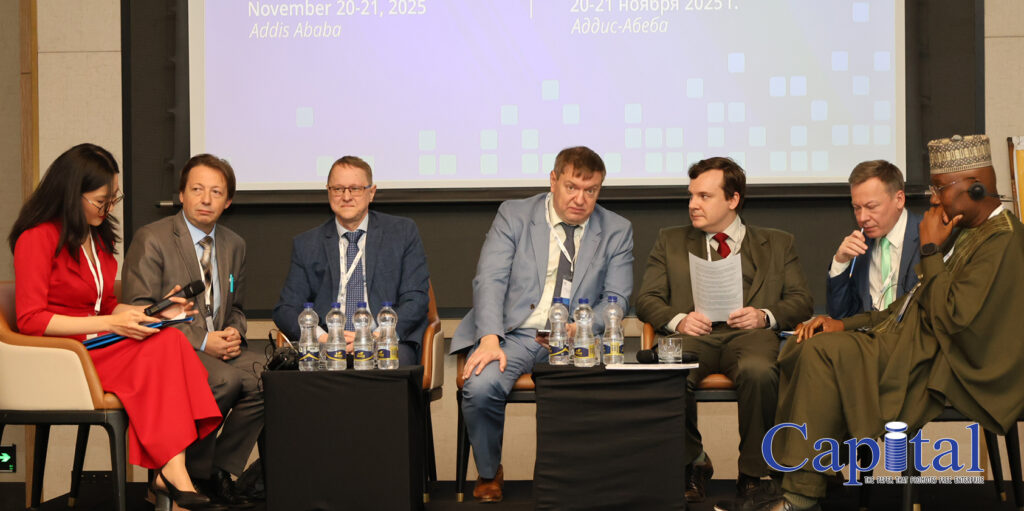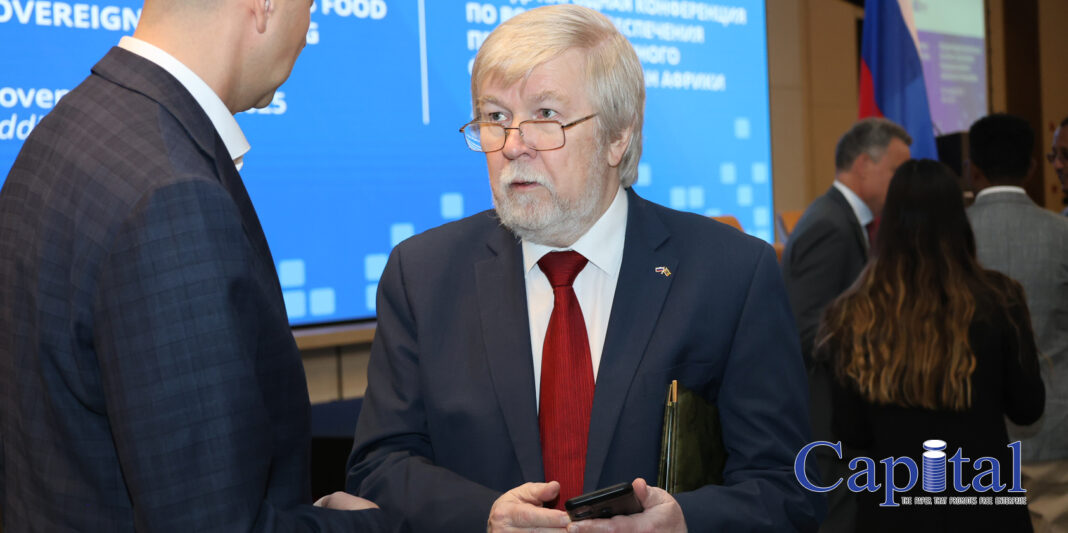The international Conference on Ensuring Food Sovereignty for African Countries concluded today in Ethiopia’s capital, solidifying a new, non-commercial partnership model focused on transforming Africa’s agricultural sector towards self-sufficiency and political-economic independence.
Hosted by Ethiopia and supported by the Russian Federation, the conference gathered over 250 delegates from 15 African nations, emphasizing a strategic shift from dependency on foreign aid and food security to full food sovereignty — empowering African countries to control their own food production, processing, and distribution using domestic resources, innovation, and commitment.
Yevgeny Primakov, Head of the Federal Agency for the Commonwealth of Independent States, Compatriots Living Abroad and International Humanitarian Cooperation (Rossotrudnichestvo), opened the summit with a call to end traditional aid paradigms. “We are here to discuss how Africa can grow on its own, develop and become truly sovereign,” Primakov said. “It’s not about the humanitarian aid that the world sends or who will lead Africa, it’s about how it should manage its destiny.”
Primakov highlighted Russia’s role in providing knowledge support and championing youth, farmers, entrepreneurs, and scientists across Africa to implement sustainable strategies for agricultural self-reliance.

Russian Foreign Minister Sergey Lavrov reinforced this commitment, praising the summit as “very constructive” and aligned with Africa’s long-term vision. Lavrov underscored that Russian economic actors will continue supporting Africa’s efforts to strengthen food security and sovereignty, aligning with key African frameworks like the African Union’s January 2025 Kampala Proclamation and Agenda 2063.
Supporting these perspectives, Russian Ambassador to Ethiopia, Evgny Terekin, framed food sovereignty as a “fundamental pillar of true and lasting national sovereignty,” warning that dependence on aid or debt-backed imports often leads to perpetual vulnerability.
The conference’s business-to-business sessions and thematic forums concentrated on sharing Russian agricultural technologies and expertise aimed at modernizing African agriculture. Presentations showcased Russia’s experience in mechanized farming, digital agriculture, resource optimization, and securing stable supply chains for essential inputs.
Minister of Agriculture Addisu Arega pointed to Ethiopia’s transformation from a wheat importer to a potential exporter as a testament to the power of innovation, climate-smart irrigation, and determination.
Bruce Biber, Head of the International Committee of the Red Cross delegation to the African Union, urged partners to commit to long-term investments that enhance the resilience of populations in conflict-affected regions and strengthen food systems.







